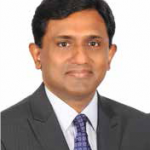As Ayurveda seeks to expand its global influence, it must prioritize scientific validation, ethical practice, and collaboration with other health systems.
Ayurveda Day 2024 will be celebrated in 150 countries on October 29 and will focus on the theme ‘Ayurvedic Innovations for Global Health’. This year, Ayurveda’s global influence is being driven by diplomacy, trade, and the migration of Indian and South Asian communities around the world. The growing influence of traditional Indian medicine has been shaped by a thriving diaspora and increased exchange of people and goods, contributing to the global spread of Ayurvedic healing practices.
In the evolving health landscape, allopathy, ayurvedic treatment, Despite varying levels of regulation, traditional Chinese medicine coexists. With its unique approach to health, Ayurvedic treatment significantly contributes to medical pluralism, efforts to decolonize health, and opportunities for strategic health diplomacy.
Read | Swallow the ban: India needs a balanced approach to anti-tobacco messaging
Ayurveda as a global medical system
Although Ayurvedic treatment is accepted as a legitimate medical practice in India, it does not have global accreditation as a recognized medical system. The Ministry of AYUSH is working to establish credibility in the international arena, with the All India Institute of Ayurveda spearheading this initiative. However, for traditional practices to become established in global medicine, a solid evidence-based foundation must be built. Ayurvedic products should be positioned as therapeutic agents and not just alternative supplements, under appropriate regulatory standards such as the Therapeutic Goods Authority.
The government recently defined ‘Ayurvedic Ahar’ as food prepared according to the recipes, ingredients or processes described in the approximately 80 ancient Ayurvedic texts. However, the advertising of these products lacks any nutritional or pharmaceutical basis. The World Health Assembly Resolution (WHA 56.31) recognizes the role of traditional systems in medicine and aims to promote traditional medical systems, including Ayurvedic treatments, based on specific global standards and practices. .
learn from china
Traditional Chinese Medicine (TCM) provides a model for integrating Ayurvedic treatment into global health systems. For example, in Australia, Chinese medicine is a nationally registered profession regulated by the Australian Health Practitioner Regulation Agency (AHPRA). Australian Health Practitioner Regulation Regulation under national legislation and accreditation by the Chinese Medical Board of Australia (CMBA) ensures high standards of safety, training and qualifications for TCM practitioners. This model has been a valuable reference for the Ministry of AYUSH, which is promoting acceptance of TCM in 183 countries and establishing similar standards for Ayurveda.
For this treatment to be recognized globally, the challenges of evidence-based medicine and medical standardization must be addressed. Evidence-based medicine relies on rigorously tested and transparent practices to ensure patient safety and quality of care. The Ayurvedic tradition, known for its individualized approach, must incorporate randomized controlled trials (RCTs) as a foundation for evidence-based practice. Building a comprehensive database of RCTs and leveraging Cochrane systematic reviews will increase the global credibility of Ayurvedic treatments.
Maintaining the unique strengths of Ayurveda
The strength of Ayurvedic treatment lies in the practice of preventive medicine and self-care. These should be emphasized instead of diverting resources to controversial practices like Ayurvedic surgery. Competing with modern medicine in areas outside of Ayurveda’s traditional scope can undermine the inherent values of Ayurveda and create a competitive, profit-driven model that reflects the flaws of hegemonic modern medicine. There is a risk of producing.
The Ministry of AYUSH has signed several Memorandums of Understanding (MoUs) with countries across the world to promote cooperation in Ayurvedic treatment. But its promotion in health diplomacy requires scientific rigor, not nationalist rhetoric. To present Ayurveda as a reliable medical knowledge system, authoritative scientific channels must be prioritized.
Ayurveda’s contribution to global health needs to be realistic within the context of rapid advances in global medicine. Technological innovations such as artificial intelligence, 3D printing, telemedicine, and medical assistance technologies are revolutionizing healthcare delivery. Ayurveda needs to establish itself in collaboration with modern science to address pressing health issues such as non-communicable diseases, mental health, antimicrobial resistance, and geriatric care.
In his address, Mr. Vaidya Rajesh Koteka, Ministry of AYUSH, highlighted that Ayurveda Day focuses on the integration of Ayurveda and modern science and enhances public access to Ayurvedic knowledge. He highlighted several digital initiatives such as Ayurveda Scheme, Ayush Research Portal and Namaste Portal. Additionally, the Ministry of AYUSH is engaging start-ups and industry players to put Ayurveda at the center of health innovation.
For Ayurveda to achieve its global health ambitions, Ayush We need to emphasize science-based training and practice. In order to integrate Ayurveda into global health, it would be beneficial to develop advanced health diplomacy skills towards realistic recognition in the field of global health. Only a science-driven, evidence-based approach can avoid unfounded nationalistic narratives and secure Ayurveda’s place in global medicine.

Dr. Joe Thomas is the Global Public Health Chair at the Foundation for Sustainable Policy Solutions, a policy think tank based in New Delhi. He is also Professor of Public Health at the Institute of Health Management in Victoria, Australia. The opinions expressed in this article are personal.
